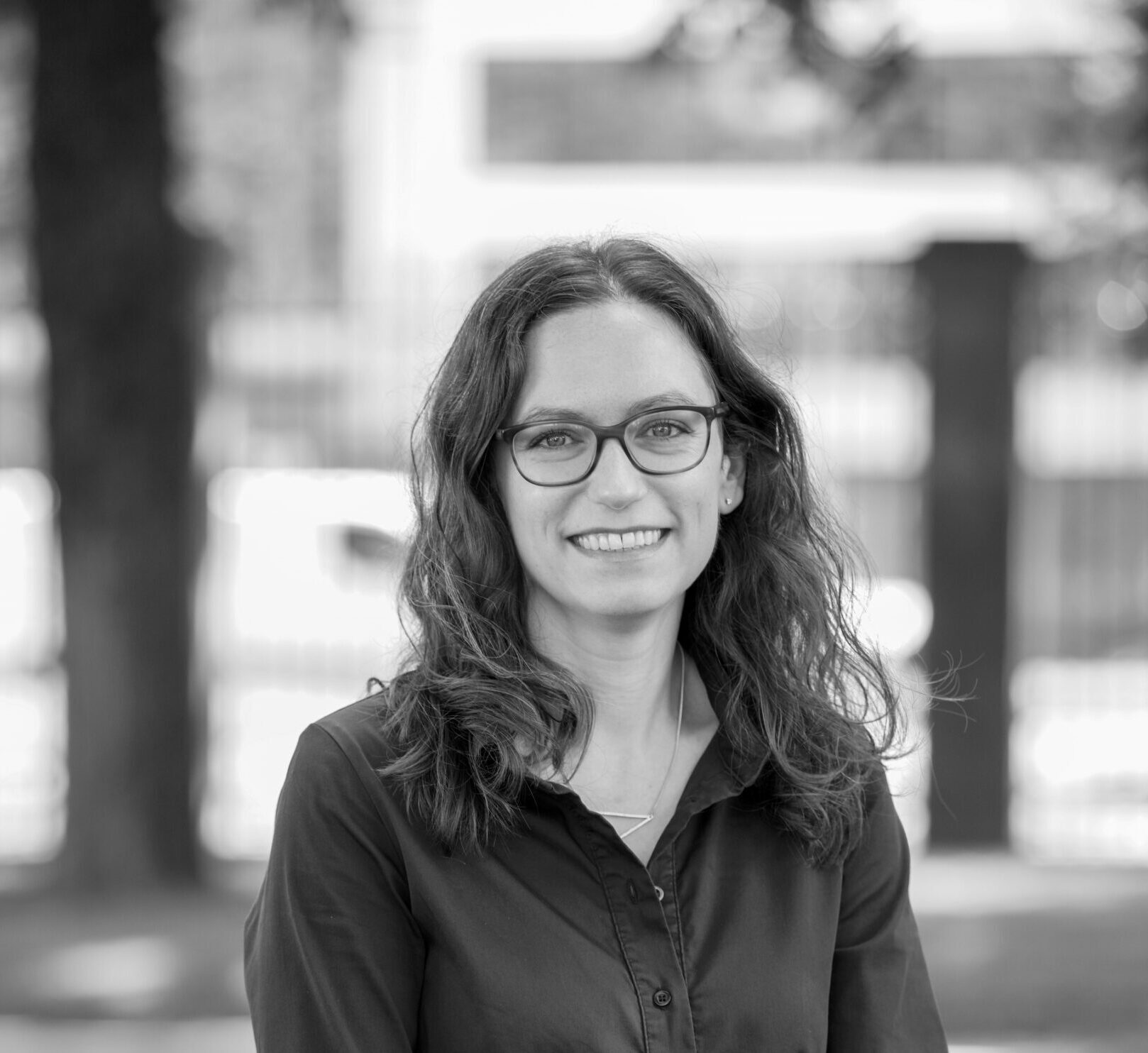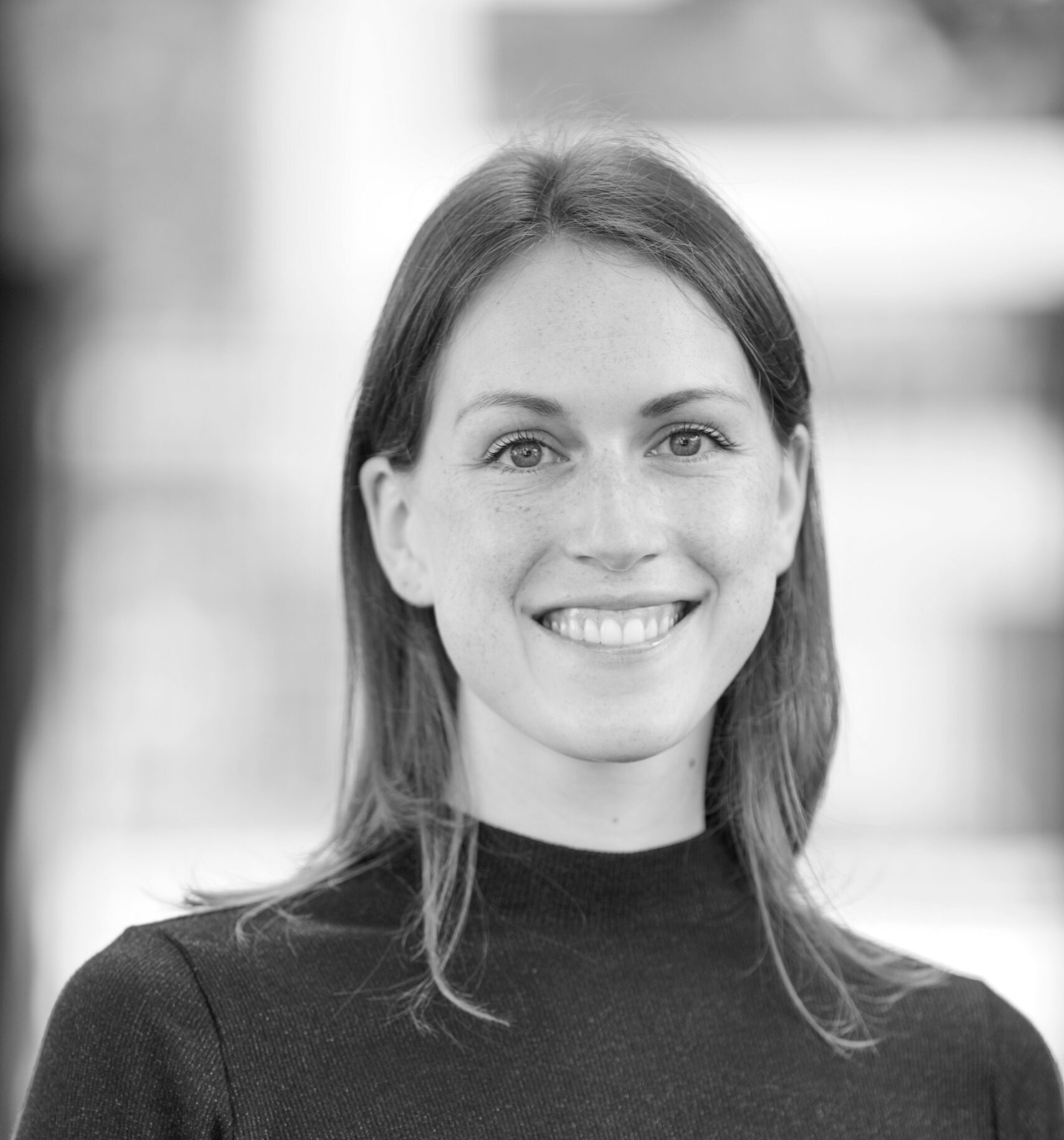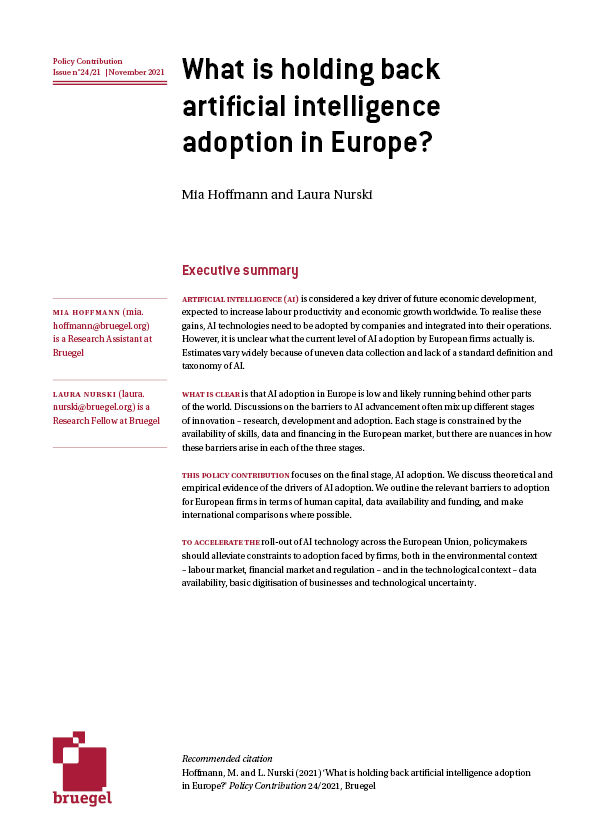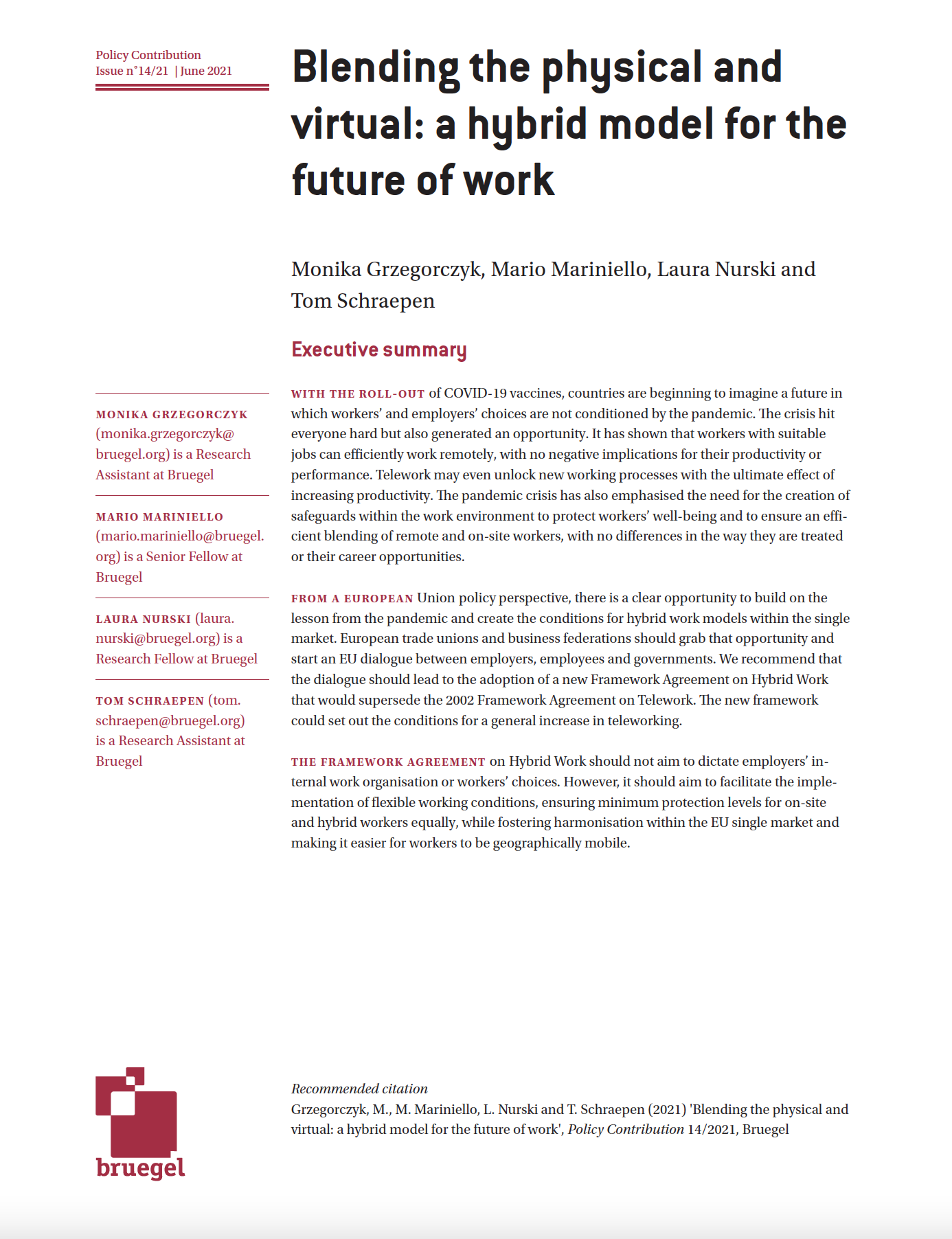Scholars

Laura Nurski
Research fellow
Expertise: Future of work and inclusive growth
Laura Nurski leads the Future of Work and Inclusive Growth project which analyses the impact of technology on the nature, quantity and quality of work, welfare systems and inclusive growth.
Before joining Bruegel, she investigated the impact of job design and organisation design on wellbeing and productivity at work. This inherently multidisciplinary domain has left her with a broad social science background, encompassing psychology, sociology and economics.
Laura is passionate about data and technology. As a former data scientist in the financial and retail sector, she developed machine learning models and big data analytics. She is also a skilled statistical programmer, survey developer and open-source aficionado.
Laura holds a Ph.D. in Industrial Organization, a M.Sc. in Economics and a M.A. in Business Engineering from KU Leuven.




